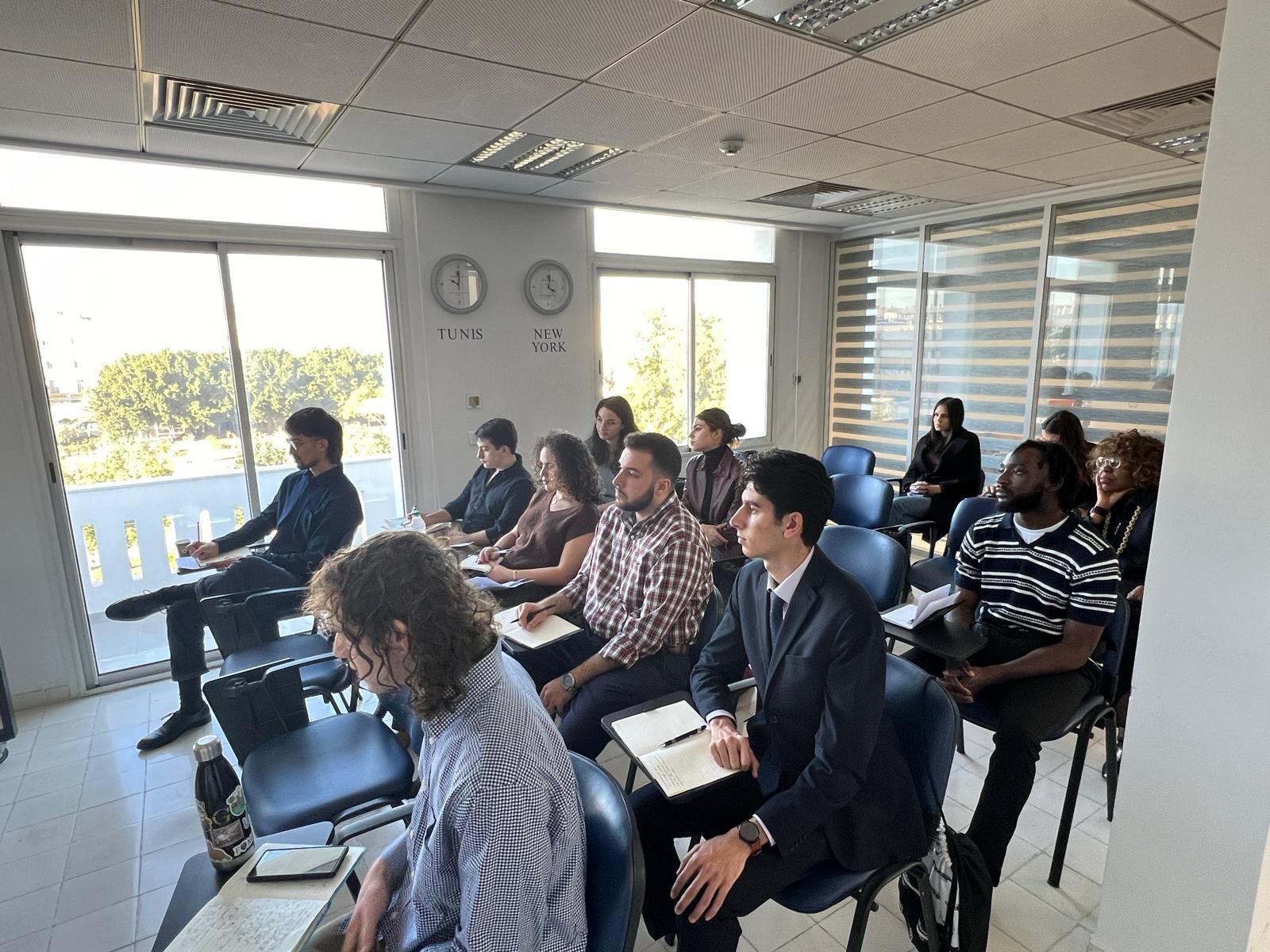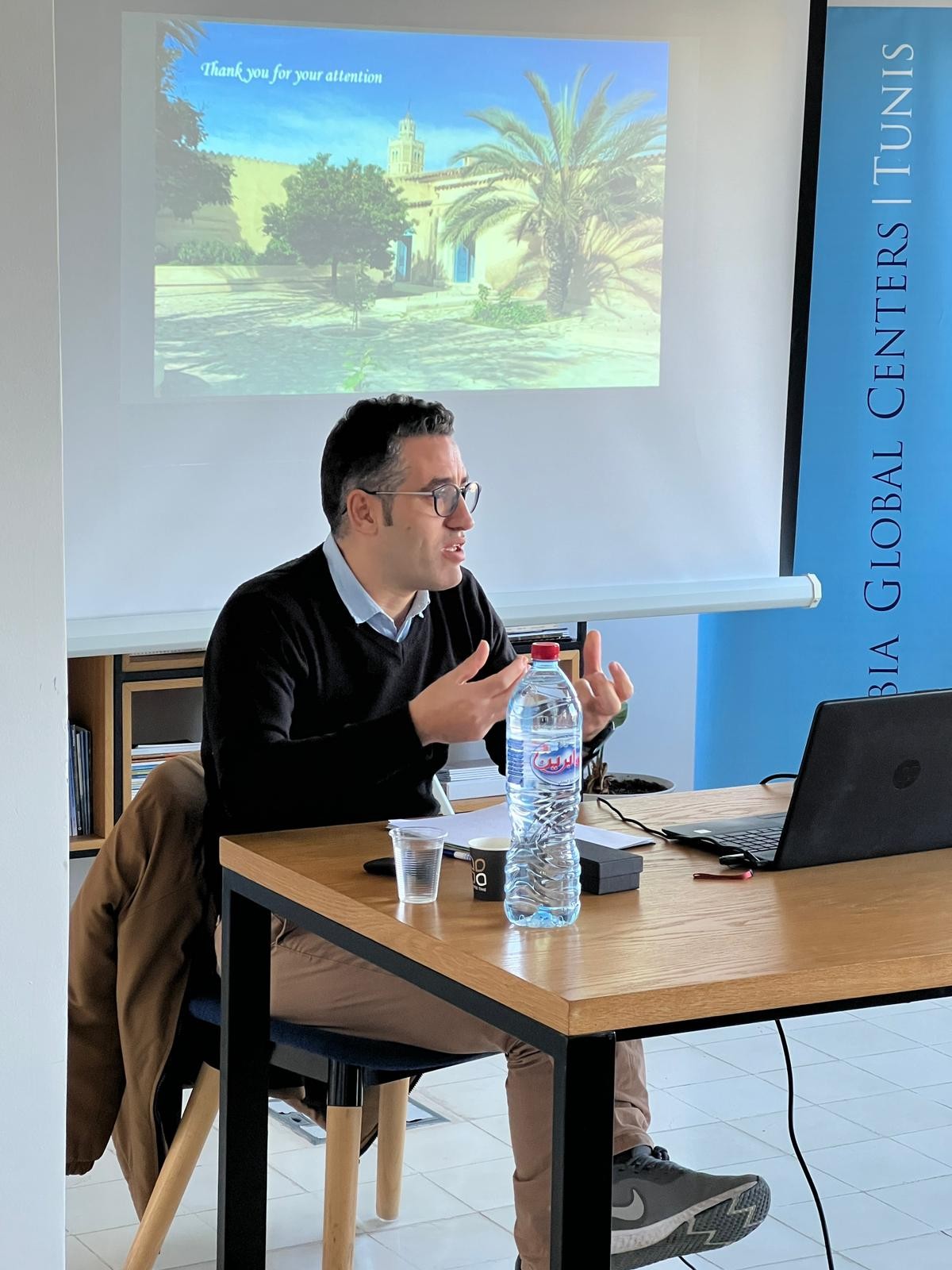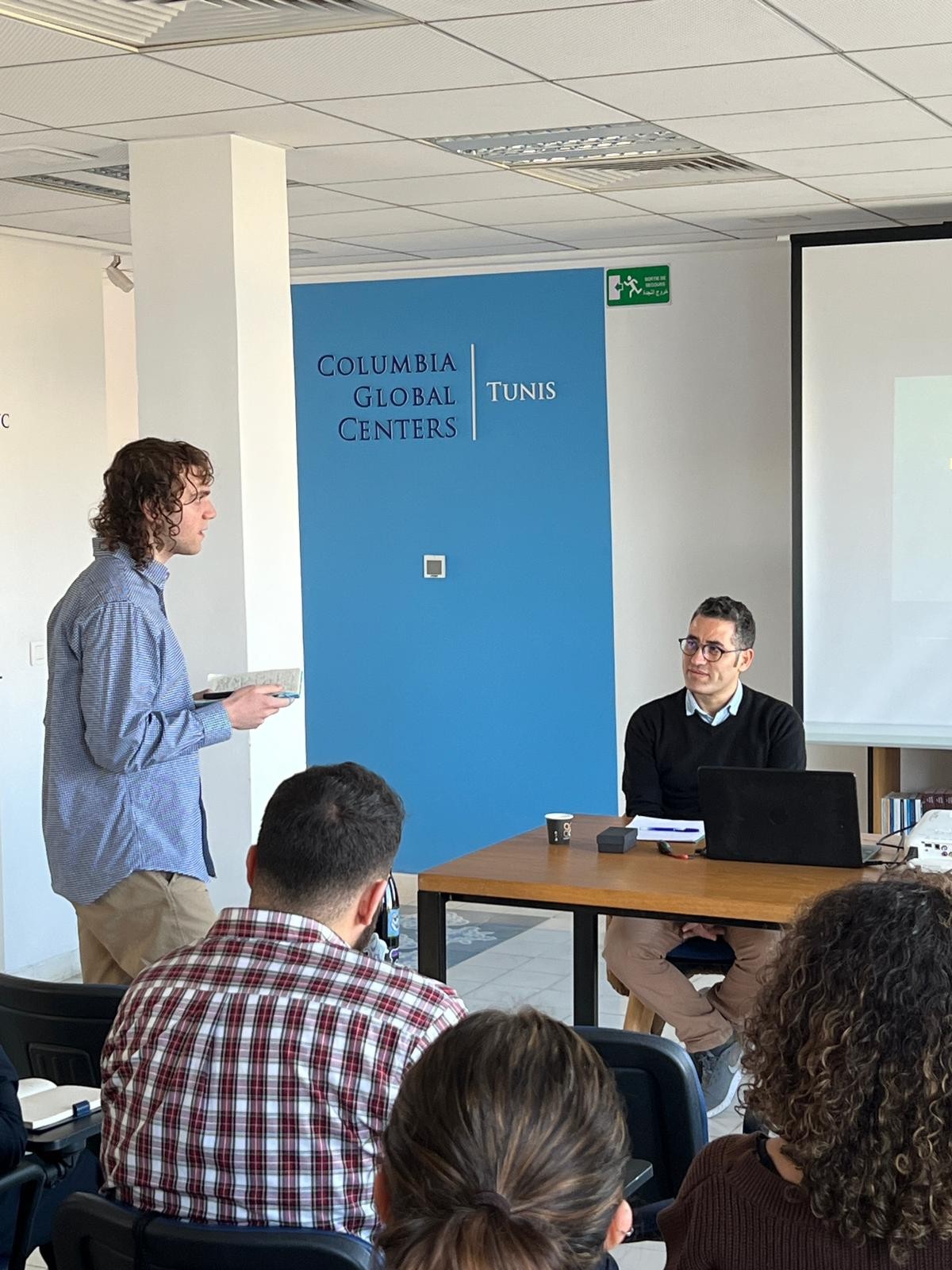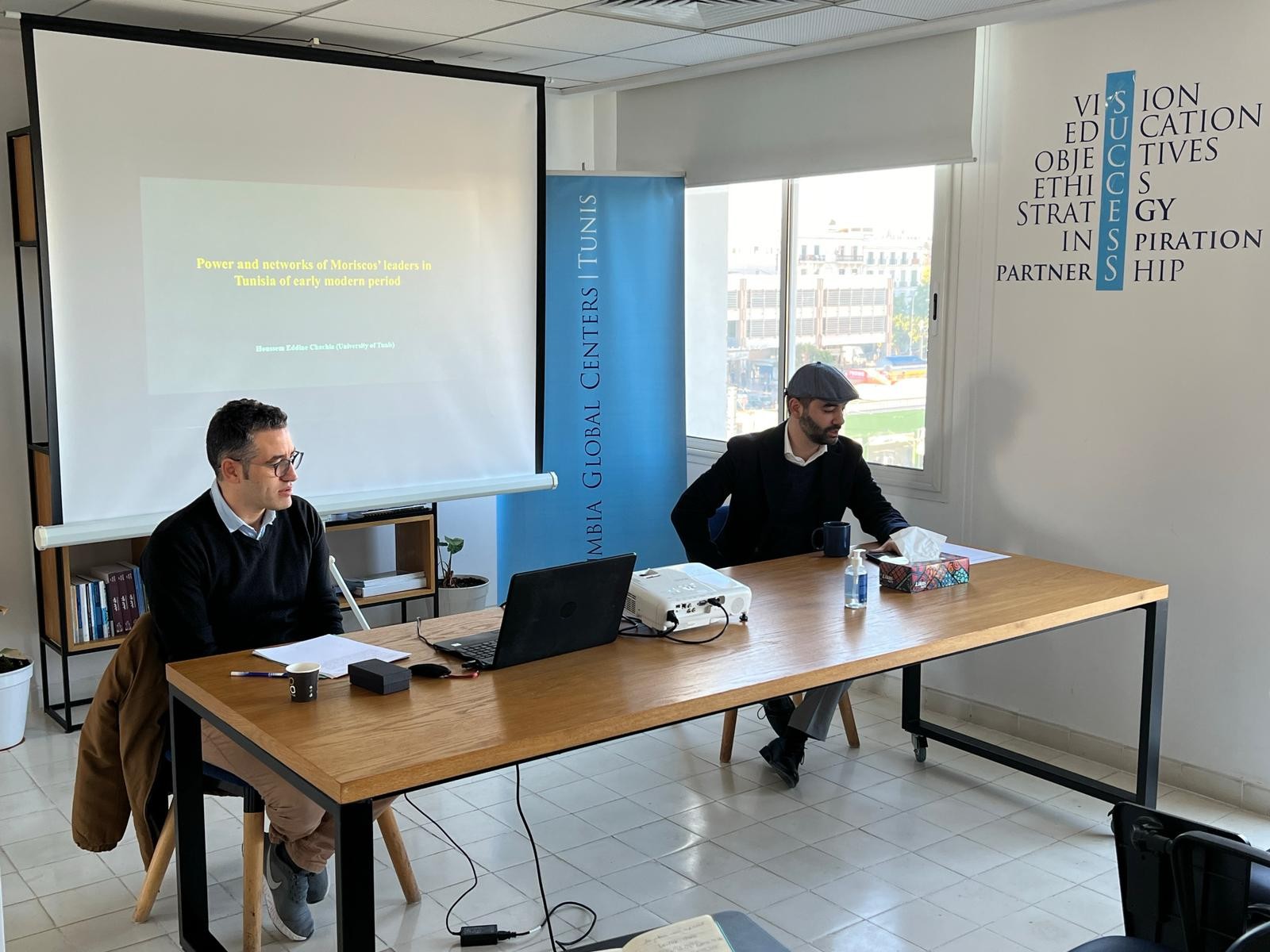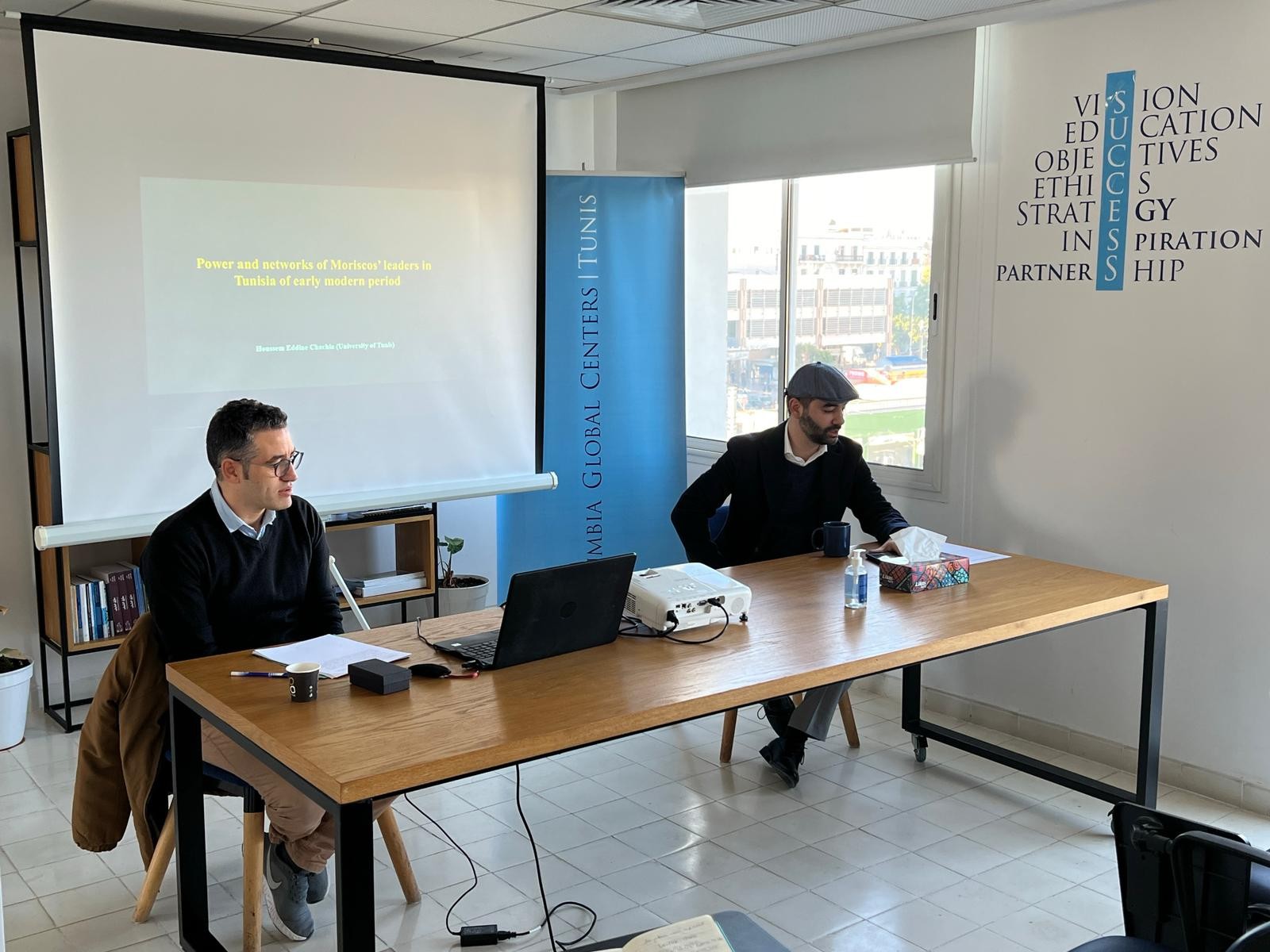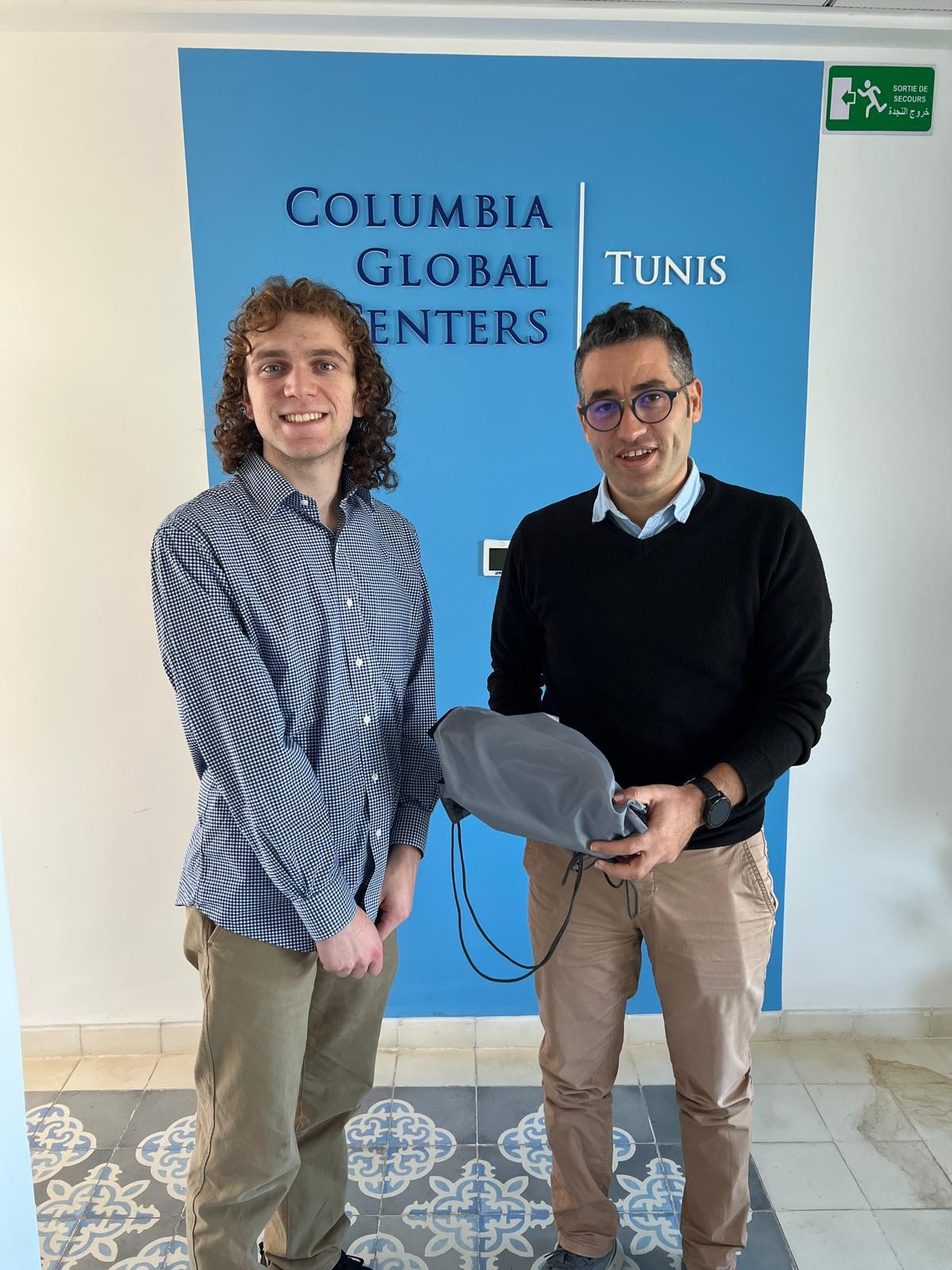Exploring the Moriscos Influence in Early Modern Tunisia
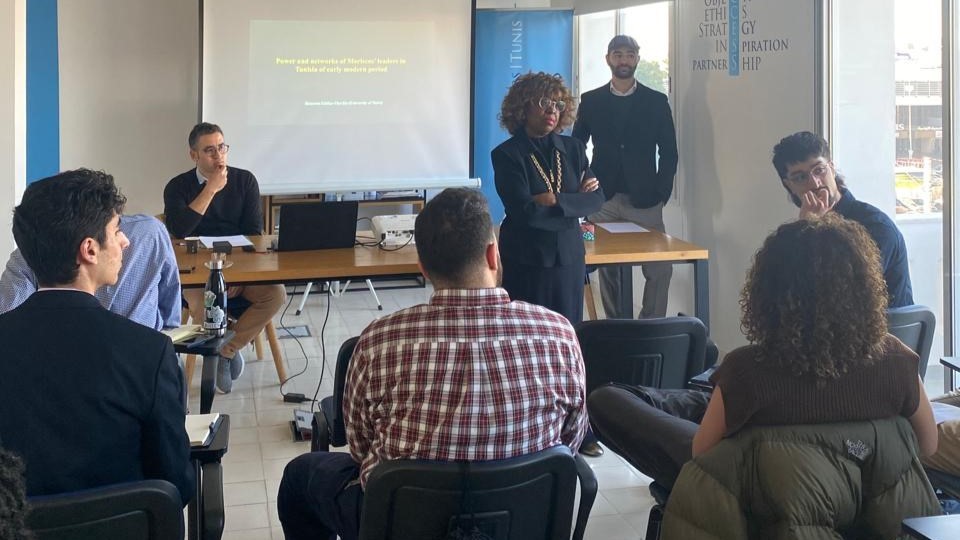
Columbia Global Centers | Tunis recently hosted Pr. Houssem Eddine Chachia, Assistant Professor of History at the University of Tunis, Tunisia, for a lecture on the power and network of the Moriscos in Tunisia during the early modern period.
On January 4th, attendees, among them the Kraft Global Fellows, gathered to explore the historical significance of the Moriscos, descendants of Muslims who sought refuge in North Africa during the Spanish Inquisition. Forced to convert to Christianity, these individuals faced persecution and discrimination in their homeland. Despite these challenges, many Moriscos managed to preserve elements of their Islamic heritage while outwardly conforming to Christian practices. This complex identity influenced their role in shaping Tunisian society during the early modern period.
Pr. Chachia, specializing in Moriscos Studies and the intricate relationship between the Iberian Peninsula and the Maghreb during the early modern period, provided an insightful analysis of Moriscos' roles in various aspects of Tunisian life. He emphasized their contributions to commerce, governance, and intellectual discourse, highlighting their ability to navigate complex networks and exert influence across different regions and communities.
The event facilitated discussions among participants, who examined the challenges faced by these Moriscos and their lasting impact on Tunisia's cultural and socio-political landscape. The discussion included the preservation of Morisco heritage and its relevance in understanding Tunisia's historical identity today.
Reflecting on Pr. Chachia's lecture and the ensuing discussions, it's clear that the legacy of the Moriscos holds relevance not only for understanding Tunisia's past but also for informing contemporary socio-political dynamics. By exploring the challenges faced by this foreign community and their enduring impact on Tunisian society, participants were prompted to consider the complexities of cultural identity, migration, and governance that persist in modern Tunisia.
As the country continues to grapple with issues of cultural diversity and political inclusion, insights from the early modern period offer valuable perspectives for navigating present-day challenges and fostering a more inclusive and resilient society.
